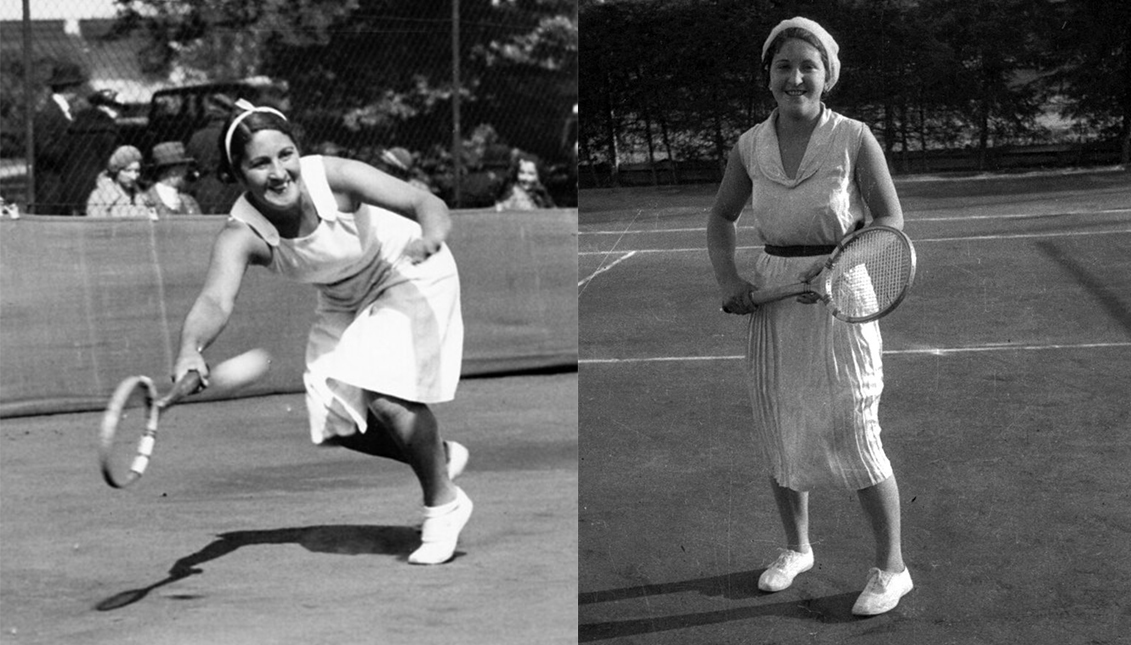
The legend of Anita Lizana, the first Latina tennis player to win a Grand Slam
Without intending to, the Chilean woman became a symbol of the feminist struggle for access to the male-dominated sport.
Chilean tennis player Anita Lizana made history in 1937 when she won the now U.S. Open. It was an extremely hot September 11 when Lizana defeated Poland's Jadwiga Jedrzejowska, who had fallen at Wimbledon's tournament just a few weeks earlier.
After winning the last match point, Anita fainted due to the tension and heat, but they were able to revive her on the court and she was able to collect the prize. After which she left New York for an exhibition tour to meet some Hollywood stars, such as Carole Lombard and Clark Gable.
A period of glory was beginning for this young Chilean woman who had grown up surrounded by the culture of tennis. In fact, it is said that as a child, she slept with her racket under her pillow.
For her father, Roberto, there was nothing but tennis, and Anita's brothers, a total of five, only played with balls and rackets. By the age of ten, Anita was already winning tournaments with her punchy style. She won the children's tournament at Club Santiago, and only three years later she won the National Championship. In Chile, there was no rival for her.
In 1935, in an exhibition match, Anita Lizana beat Hugo Chiessa, a member of the Swiss Davis Cup team. At that very moment, her father decided to boost her international career by organizing a fundraiser so that his daughter could travel to Europe - he collected 120,000 pesos, a real fortune. Although Roberto was a good coach -in the future he was to be the discoverer of another Chilean tennis myth, Luis "Lucho" Ayala-, the family never enjoyed a comfortable economic position.
In England, Anita won three tournaments and returned home a hero. Her rivals nicknamed her "La Ratita" ("the tiny rat") because she was only five foot two and ran very fast.
When she disembarked from the Transatlantic Orduña, she could not believe her eyes: 200,000 people had gathered in the port of Valparaiso to welcome and entertain her. Her father was the first to give her a hug. Immediately afterward, they went to Santiago de Chile, where the President of the Republic himself, Arturo Alessandri Palma, received her in the Palacio de la Moneda.
RELATED CONTENT
Anita Lizana had become an icon in her home country, and also a symbol of the feminist struggle since she gained visibility and recognition — unthinkable for a sportswoman at that time.
Unfortunately, after a brilliant career, the Second World War crossed her path.
In Scotland, she met who would be her husband, Richard Ellis, number two player in the Scottish tennis.
They met in a peculiar way: they were playing a doubles match, and at the end, Anita told Richard not to worry about not having a good day, to which he replied that he had not been able to look at the ball for a single moment, because he had been looking at her the whole time.
They were married two years later and then settled in a mansion in the town of Dundee.
The couple had two daughters, and Anita never played like she used to. In 1947, she lost at Wimbledon in the first round. Her Chilean family could never afford a trip to Europe, and they never saw the star again. Only once, when she returned home in 1966, invited by President Frei Sr.
Richard Ellis died in 1978, and the Chileans asked Anita Lizana to return home. But she didn't: she preferred to take care of her daughters and grandchildren, playing golf to pass the time, comfortably settled in the United Kingdom.











LEAVE A COMMENT:
Join the discussion! Leave a comment.